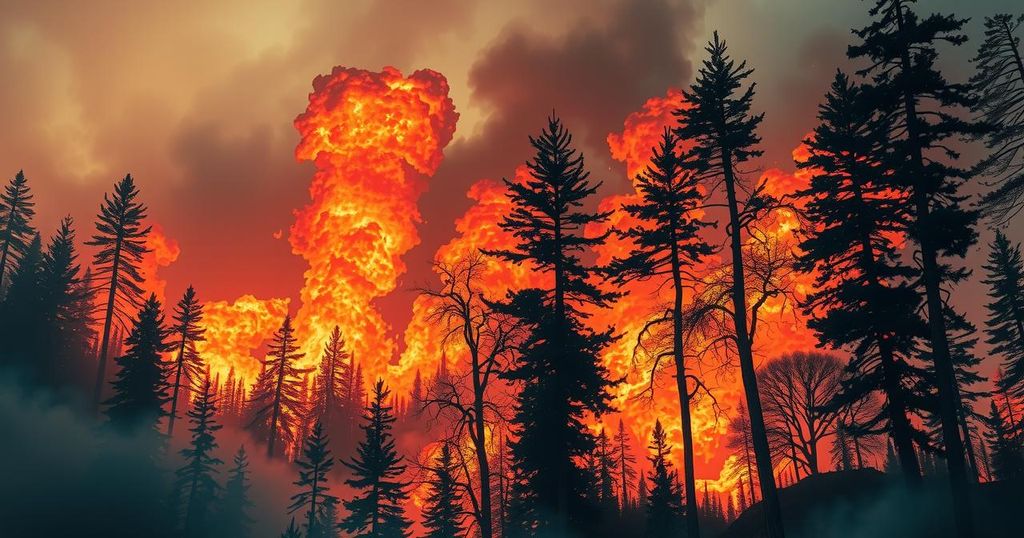Japan Faces Devastating Wildfire: Impacts and Ongoing Battle Against Flames

Japan is experiencing its worst wildfire in 50 years, resulting in one death and evacuating around 4,000 residents. The fire, exacerbated by climate change and record-low rainfall, has burned 2,600 hectares. Local businesses are affected, and firefighting efforts involve around 2,000 personnel. Roki Sasaki has also made a significant donation for relief efforts.
Japan is currently facing its most severe wildfire in 50 years, leading to one casualty and the evacuation of nearly 4,000 residents. The blaze, which began five days ago in a forest near Ofunato, was ignited due to record low rainfall. This incident is compounded by last year’s record-high summer temperatures, which have been exacerbated by climate change.
As of Tuesday morning, the wildfire has consumed about 2,600 hectares (6,400 acres) of land, making it the largest in Japan since 1975 when Kushiro lost 2,700 hectares of forest. The damage assessment indicates at least 80 buildings are affected. Firefighters and military helicopters are actively engaged in combating the flames, although no containment has been achieved yet.
Snow and rain are forecasted overnight, but officials caution that adverse weather could hinder aerial firefighting operations. Currently, approximately 2,000 firefighters, many from distant regions including Tokyo, are on the ground and in the air battling the fire in Iwate, an area previously devastated by a 2011 tsunami.
An evacuation advisory impacts around 4,600 individuals, with 3,939 evacuating to safety. While the overall frequency of wildfires in Japan has decreased since the 1970s, approximately 1,300 incidents occurred in 2023 primarily during the dry months of February to April.
Ofunato reported a record low of only 2.5 millimeters (0.1 inches) of rain in February, well below the normal average of 41 millimeters. The lack of precipitation in the area has heightened concerns regarding fire risk, alongside complex interactions of various weather phenomena associated with climate change. Businesses like Taiheiyo Cement and Saitoseika face operational disruptions due to the fire’s proximity to evacuation zones, adding economic strain to the affected area.
Roki Sasaki, a professional baseball player linked to the region, has contributed significantly by donating 10 million yen ($67,000) and bedding supplies to assist local victims affected by the ongoing disaster.
In summary, Japan’s worst wildfire in decades has incited widespread evacuations, claiming at least one life and threatening local businesses. The fire’s rapid spread highlights the growing impacts of climate change, particularly through extreme weather patterns. Continued firefighting efforts are in place, yet the battle against the blaze remains ongoing amid uncertain weather conditions.
Original Source: www.elkvalleytimes.com







